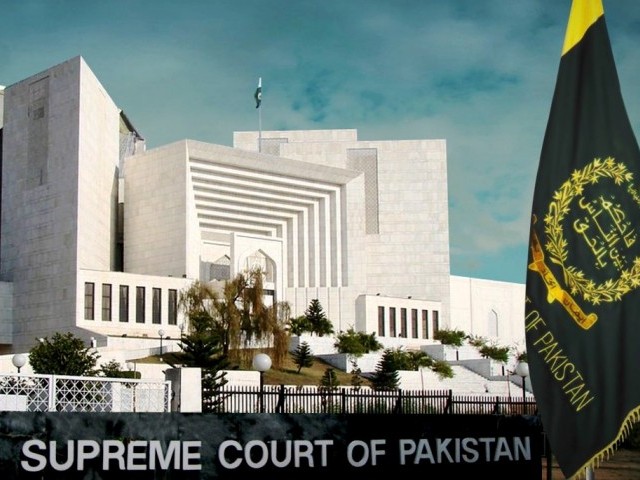
The apex court has admonished Peshawar High Court (PHC) Chief Justice Waqar Ahmed Seth for using inappropriate words for a mother, while setting aside his verdict in a child custody case.
"It also pains us to state that the high court was not very sensitive in dealing with the case by referring to the petitioner as a ‘crippled/disabled lady having no source of income’.
“In determining the welfare of the child and his custody neither the mother’s physical condition nor her income are determinative factors,” said a 11-page judgment authored by Justice Qazi Faez Isa.
Through this order, the SC set aside the PHC 3-page order to hand over custody of seven-year-old Rayyan to his father because mother is a crippled and has no source of income. It directed the father to hand over the physical custody of the minor to his mother within seven days.
The SC noted that it was also inappropriate to refer to the mother as crippled or disabled.
“The petitioner (mother) has a physical disability; she should not be called a cripple or disabled. The mother has not resorted to beggary; she works and earns an honest living.
“To denigrate such a lady was wholly inappropriate. Instead she should be admired for demonstrating remarkable determination and perseverance," it said.
Justice Isa also referred to Justice Mansoor Ali Shah’s judgment as the Lahore High Court chief justice.
Justice Shah, who is now an SC judge, had ruled that the use of the terms or words like “disabled”, “physically handicapped” and “mentally retarded” characterize and label a person on the basis of an impairment, which negates reasonable accommodation as they deny persons with disabilities the enjoyment or exercise on an equal basis with others of all human rights and fundamental freedoms.
He endorsed Justice Shah’s observation that pejorative words “seriously offend the right to be a person thereby infringing constitutional guarantees like right to life, right to human dignity and right to non-discrimination of persons with disabilities, thereby violating Articles 9, 14 and 25 of the Constitution.
"We may add that the Constitution permits the State from making any special provision for the protection of women and children’ but does not permit discrimination."
The court also declared that the agreement to the extent that the mother surrendered the custody of her child or which stopped the mother to claim his custody is not lawful consideration.
"It is also contrary to the Islamic principles governing hizanat and the law determining the custody of minors and thus forbidden. An agreement the object or consideration of which is against public policy is void," said the judgment.
The court noted that the Principles of Policy set out in the Constitution is the path, and the destination, that the nation has set for itself. The principles require that steps shall be taken to ensure full participation of women in all spheres of national life.
“If women with physical disabilities are considered not able to take care of their children they would stand excluded from participation in family life and excluded from the much higher proclaimed objective of participation in all spheres of national life."
The court also noted that in regards to the rights of the mother and the child, the law, Islam and the Constitution are often violated. However, it is inexcusable when constitutional officeholders, who take an oath to uphold the Constitution and are paid to do so, undermine such rights.
“Disregarding the principles is contrary to the express language of the Constitution, which provides that, it is the responsibility of each organ and authority of the state, and of each person performing functions on behalf of an organ or authority of the state, to act in accordance with those principles in so far as they relate to the functions of the organ or authority’"
“The Principles of Policy are contained in ten articles and these were given by the people to themselves through their chosen representatives when the Constitution was written.
“The importance of the principles is such that the President of Pakistan is required to submit an annual report to the Parliament and similarly the Governors to their respective Provincial Assemblies on the observance and implementation of the Principles of Policy," it said.
COMMENTS (1)
Comments are moderated and generally will be posted if they are on-topic and not abusive.
For more information, please see our Comments FAQ




1732538123-0/BeFunky-collage-(90)1732538123-0-165x106.webp)

1732530440-5/Copy-of-Untitled-(85)1732530440-5-270x192.webp)



1732534225-0/Express-Tribune-(13)1732534225-0-270x192.webp)






The judgment is very impressive and in accordance with the constitution and natural justice